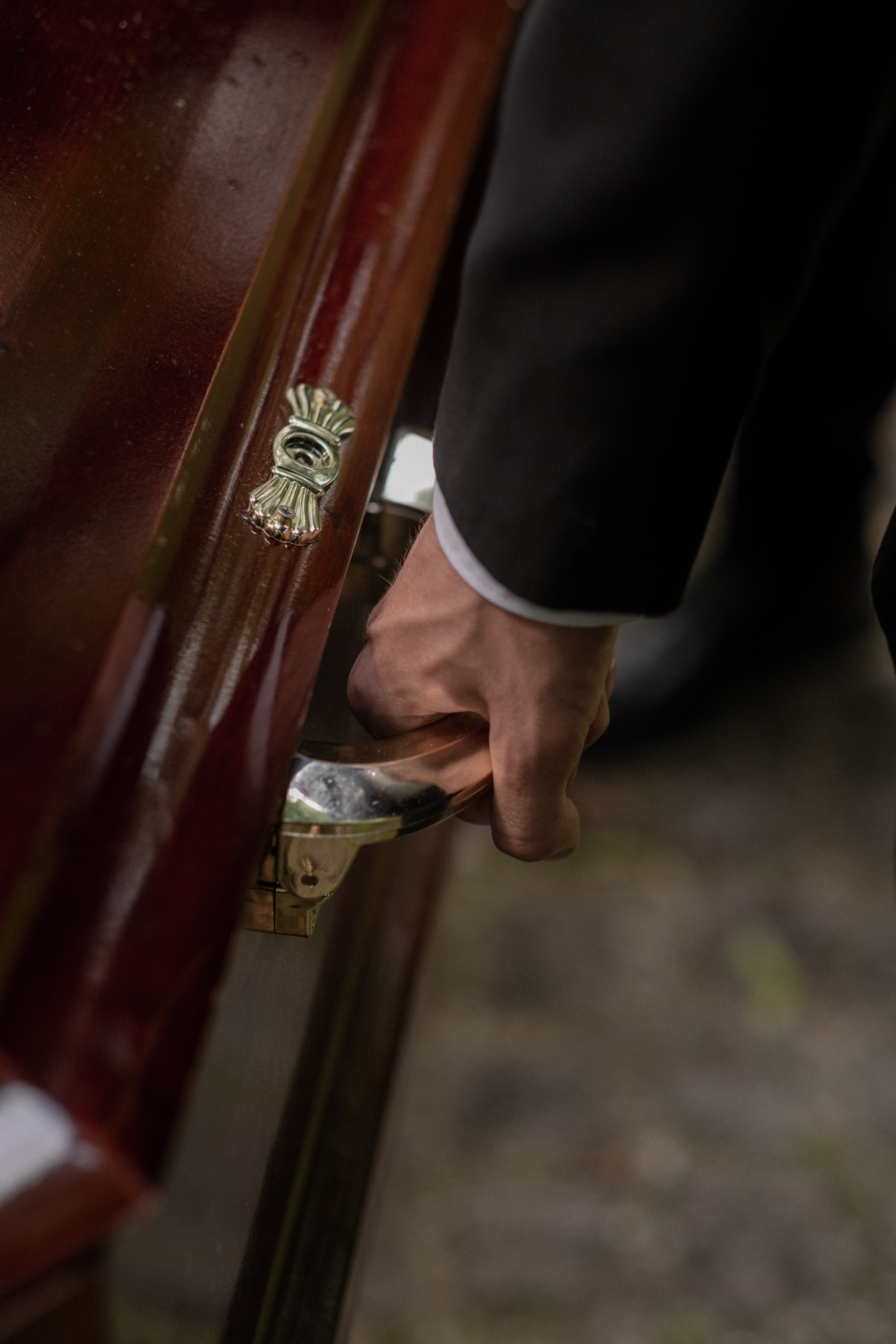A TV presenter with a traditional Māori face tattoo has calmly replied to negative comments from a viewer, proudly standing up for her cultural heritage and identity.
Facial tattoos often spark debates online. Some people think tattoos should only be on the body, while others understand and appreciate their cultural importance.
Oriini Kaipara, 41, made history when she became a newsreader for New Zealand’s Newshub. She is the first primetime TV news presenter to wear a moko kauae, a special facial tattoo for Māori women.
The Māori are the indigenous people of mainland New Zealand. They see moko kauae as important symbols of their heritage and identity. These tattoos, traditionally on the lips and chin, show a woman’s family ties, leadership, and honor her lineage, status, and abilities.

Oriini Kaipara. Credit: Oriini Kaipara / Instagram.
Despite receiving praise, one viewer named David expressed his dislike for Kaipara’s moko kauae in an email to Newshub.
He wrote, “We continue to object strongly to you using a Māori newsreader with a moku [moko] which is offensive and aggressive looking. A bad look. She also bursts into the Māori language which we do not understand. Stop it now,” according to the Daily Mail.
But Kaipara didn’t let David’s negative words stop her. She bravely shared screenshots of his messages on her Instagram story and responded calmly.
“Today I had enough. I responded. I never do that. I broke my own code and hit the send button,” she wrote on her Instagram story alongside a screenshot of David’s message.

Kaipara didn’t just share screenshots of David’s email, she also responded to him. She explained that his complaint wasn’t valid because she hadn’t broken any rules for TV.
She also corrected David’s spelling mistake. He called her tattoo a “moku” instead of “moko”.
In her email back to him, Kaipara said, “I think you don’t like how I look on TV. But tattoos and people with them aren’t scary or bad. We don’t deserve to be treated badly because of them.”
She asked him to stop complaining and to try to understand better. She even joked that maybe he should go back to the 1800s if he couldn’t accept people with tattoos.

Despite David’s negative words, Kaipara says she mostly gets nice comments, and mean ones are rare.
In an interview with the New Zealand Herald, Kaipara talked about how it’s important to have more Māori people in important jobs. She said, “The fact that my existence makes some people upset shows why we need more Māori people in every job.”
Kaipara’s calm response reminds us how important it is to be proud of who you are, even when people are mean. She’s inspiring others to be proud of themselves and stand up to unfair treatment.
What do you think of this story? Share your thoughts in the comments!
After Wife’s Demise, Widower Finds Out They’ve Been Divorced for More than 20 Years – Story of the Day

Wealthy investor Robert, dealing with the aftermath of his wife’s death, stumbles upon a secret divorce agreement and another startling revelation, leading him on a transformative journey toward forgiveness.
Robert sat on his couch, staring blankly at the divorce decree. He was in his up-market beach house, surrounded by memories of Melissa, his wife of 30 years.
Her death had been a blow, but finding this document in her belongings was bewildering. He had no memory of ever divorcing her.
He reflected on the accident he’d had years ago, which caused head trauma and a six-month memory gap for him. Reading the document, he realized that it was during that time he had apparently initiated the divorce. “July twenty years ago,” he muttered, noting the date on the document.

For illustration purposes only | Source: Unsplash
His life back then was a whirl of socializing with artists and actors, fueled by excessive drinking. Despite the temptations, he remained faithful to Melissa, although his drinking issue strained their marriage.
He eventually picked up the phone and dialed the law firm’s number on the letterhead, only to find they had moved. The receptionist at the other end suggested he Google the new number.
Robert returned to the document and was stunned that Melissa was entitled to half his considerable wealth in the divorce. He had been wealthy even then, with a fortune inherited from his father.
Robert had dabbled as a stockbroker, but for the most part, he paid others to manage and grow his wealth while he lived an easy and high life in New York City.

For illustration purposes only | Source: Unsplash
Not that he’d been irresponsible; he spent his money well and donated large sums to charitable organizations—he left that side of his dealings to his wife to manage, which she did well.
He returned to Melissa’s box of documents and discovered more surprises. Among them was a birth certificate for a child named Tallulah, born three years before their marriage. The child’s last name matched Melissa’s maiden name.
Robert’s heart raced. He had always sensed Melissa had a secret, but this was beyond anything he had imagined. A child he never knew about.
He pondered the situation, troubled. Melissa had fought cancer bravely, but it had spread rapidly, taking her life. Robert, still grieving, now grappled with this new revelation.

For illustration purposes only | Source: Pexels
He decided to discuss it with his twins, Pete and Sandra. They were close to their mother, especially during her illness, and had returned home for her funeral.
As he sat them down, he explained his discovery. The twins were shocked, unable to comprehend their mother’s secret.
“Why didn’t she tell us?” Sandra asked, visibly upset.
“I don’t know. Maybe she thought it’d hurt us,” Robert replied. “I’m also trying to understand why there’s a divorce document. I don’t recall any of it… due to the accident.”
While scrutinizing the divorce paper, Pete suggested, “You should look up the lawyer listed here on LinkedIn.”
Robert agreed, but they decided to focus on the funeral first.

For illustration purposes only | Source: Pexels
***
In the quiet aftermath of the funeral, Robert summoned the courage to confront the situation. It didn’t take long for him to trace the lawyer who had officiated the divorce; he was with another firm in New York.
The call brought more surprises; Franklin recognized Robert instantly and expressed concern about his well-being.
“Well, yeah, I’m fine,” Robert said, flummoxed that Franklin seemed to know who he was. “So, you know me?”
“Of course I do. It was a chaotic time, what with your accident. How’s Melissa?”
“Melissa passed away about a week ago.”
“I’m so sorry to hear that. How can I help?”

For illustration purposes only | Source: Pexels
“Uh, I found some documents that I’m quite concerned about. A divorce decree and a birth certificate for a child.”
There was complete silence on the other end of the line. “I handled the divorce, Robert. It was an open-and-shut case. You don’t remember it?”
“I don’t. Melissa and I were happily married for thirty years.”
“You never left her?”
“I never left her, Franklin. Do you have records of the divorce and Melissa’s will?”
“We have everything on file. How about coming to New York to figure this out? It’s serious.”

For illustration purposes only | Source: Pexels
Robert agreed and flew to New York. In Franklin’s office, they discussed Robert’s past and Melissa’s recent will change.
“Do you remember anything about the accident, the fall?”
“No, just what Melissa told me. I fell from the balcony during an argument about my drinking.”
“Did Melissa tell you anything else about that night?”
“You mean later on when I recovered? No, we didn’t speak about it much,” Robert replied. “She moved us to California. She found the best head trauma specialist in the country out there to help with my recovery. I was in good hands.”

For illustration purposes only | Source: Unsplash
“So, you never saw any media coverage at the time?” Franklin asked.
“Melissa thought it best I stay away from that completely. She wanted a fresh start away from that life. I agreed. I think it was the best thing to do.”
“Robert, this might be hard to hear. Were you aware of the life insurance policy in Melissa’s name?”
“I’d forgotten about that. We bought it soon after we were married,” Robert mused. “She would’ve been the sole beneficiary at the time of the accident. Hang on, are you saying—”
“I’m not saying anything, Rob, please. The media speculated Melissa had something to do with your fall,” Franklin revealed. “But well, you survived, and she never cashed the policy. By the way, she changed her will at the time of your accident.”

For illustration purposes only | Source: Unsplash
“Does the name of the beneficiary mean anything to you?” Franklin asked, sliding a sheaf of papers across to Robert.
“Tallulah J—,” he said. “Yes. Remember the birth certificate I said I found in Melissa’s personal effects? Same name.”
Robert reached into the leather shoulder bag he’d brought, found the birth certificate, and handed it over to the lawyer.
“The plot thickens,” Franklin said, looking the document over. “Along with the will, there’s a sealed letter from Melissa addressed to you with instructions to be read only in the event of her death. Are you ready for it?”
Robert nodded. “Let me see it,” he said.
Franklin handed over the envelope. “I’m going to visit the bathroom,” he said. “Please take your time.”

For illustration purposes only | Source: Pexels
Robert opened the letter and read:
“My Dearest Robert,
I’m sorry for keeping such a big secret. When I fell pregnant with Tallulah, I was scared. I thought you’d leave me, so I kept it a secret until your private investigator found out.
I had Tallulah adopted, and I never told anyone else about her. I thought I was doing the right thing, but I was wrong. I’ve missed her every day. And yes, no matter what anyone says about that night, I had nothing to do with the fall. It was an accident.
I’m so sorry for everything. I hope you can at least try to understand.
Love,
Mel”

For illustration purposes only | Source: Pexels
“In her will, Franklin, she left her entire estate to Tallulah?” Robert asked as the lawyer returned.
Franklin nodded. “She tied all the assets up in a trust account that pays out to her daughter in the event of Melissa’s death.”
“That money is mine,” Robert declared. “Can we challenge the will in court? Can the divorce be rescinded?”
Franklin explained the challenges but agreed. “I think we can make a case.”
“How much money are we talking about here?” Robert inquired.
“You mean, how much will it cost to contest the will and annul the divorce?” Franklin clarified.
“No, how much money was my wife worth when she died?” Robert asked.

For illustration purposes only | Source: Pexels
“Nearly half a billion dollars,” Franklin revealed.
“And it all goes to her daughter Tallulah now?”
“That’s right,” Franklin confirmed. “Unless we sue the estate for what she did to you, hiding all this.”
“In that folder you have there, are there any contact details for Tallulah?” Robert asked.
“There’s a last known address. Looks like a business address.”
“Write down that address for me, please, Frank,” Robert said.
Franklin provided an address in Los Angeles. Determined, Robert visited the given location, a rundown studio, and encountered a gruff man.

For illustration purposes only | Source: Unsplash
“I’m looking for a woman,” Robert began.
The man scoffed. “Join the club. Aren’t we all?”
“She’s around 33. This is the address given as her workplace,” Robert said, ignoring the man’s joke.
“Let’s see, that could be any one of, I dunno, a hundred women in the last year alone. I can’t help you, brah. Best you shove off. Are you a lawyer or somethin’?”
“No, this is a personal matter. I’m looking for my wife’s daughter.”
“Another one looking for a long-lost daughter,” the man mocked.
“What do you do here?” Robert asked. “Is this an adult film studio?”

For illustration purposes only | Source: Unsplash
“Got that right, genius. Now are you going to piss off, or do I have to throw you out?”
“There’s no need for that. I’m here to give this woman some news about her mother; she died,” Robert said. “Her name is Tallulah.”
Robert offered him a $1000 reward if he told her about Tallulah. The man agreed after seeing the money.
“Her stage name is Tulip Jones, or sometimes, she goes by TJ. Try Melrose Productions a couple of blocks over,” the man disclosed. “And don’t tell her I told you where to find her. She’s not exactly in our good books around here. Ran out on us a year ago.”
Robert gave him the money and left.

For illustration purposes only | Source: Pexels
Despite a somewhat warm reception at Melrose Productions, Robert was directed to contact her through a provided cell phone number. He wasn’t sure if she’d answer his calls, so he left her a message. Finally, they spoke over text and agreed to meet.
As they sat across from each other, Robert divulged the truth about Melissa, the inheritance, and his desire to guide Tallulah through managing the substantial sum.
“Why should I trust you to handle my money?”
“I’ve made it my business to manage money; believe me, it’s not as easy as you think,” Robert assured her.
Their conversation shifted to personal matters. Tallulah revealed her disdain for the adult film industry and her desire to escape it. She’d been forced into it by her foster mother.

For illustration purposes only | Source: Pexels
“Trust me, from this day on, you don’t have to do it ever again. I can promise you that,” Robert assured her, handing her his business card.
She looked up at him with a hint of surprise and hope after she’d skimmed the details on the card. “You’re a producer?” she asked.
“Executive producer,” Robert said. “I can show you how to get into it if you like. You’ll be in a good place with your inheritance money as long as you don’t gamble it all on one film. It’s a tough business.”
“I could go for that,” Tallulah said thoughtfully. “The proper film business, I mean. Not gambling.”
“How about meeting my kids, too? Twins: a boy and a girl. Twenty-two. Good kids. One’s at film school, and one’s studying business. Good combination.”

For illustration purposes only | Source: Pexels
Tallulah agreed, and a few days later, she finally met Sandra and Pete at Robert’s Santa Monica office. As small talk flowed, Robert proposed a trip to New York to handle Tallulah’s inheritance.
With plans unfolding, Tallulah hesitantly shared her desire to use part of the inheritance to establish an organization to help women leave the adult film industry. And they all decided to name it after Melissa.
“I’d be happy to draw up a business plan,” Pete offered.
Under Robert’s guidance, the organization named Melissa’s Hope thrived. Tallulah became an advocate for trafficked women and children. The siblings bonded, creating a close-knit family.
Robert remained grateful for everything he had been given in life. He took every opportunity to give to others and help them as best he could. And above all, he remained grateful for the lesson in love his late wife had given him.

For illustration purposes only | Source: Pexels
Tell us what you think about this story, and share it with your friends. It might brighten their day and inspire them.



Leave a Reply